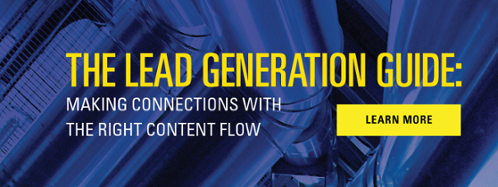
Great writers are clear thinkers. Their prose is crisp, clear and concise. But any writer will tell you—their early drafts are pockmarked with extraneous details, non-sequiturs and some truly cringe-worthy metaphors.
If you want to sound smart (aka knowledgeable), you have to simplify. And that’s not always easy to do when dealing with specialized industries. From finance to high-fashion, every vertical has its own vernacular. But here are our best tips for getting past the clutter, and getting your point across.
1. Think Individual, Not Brand
Corporate communications often sound like they come from a committee—unmoving, uncaring and incapable of relating to individual human beings. Press releases and other “blanket” statements tend to take on these attributes, to the detriment of the reader.
Remember that any brand—from Apple to Zappos—is ultimately made up of people. Let them do the talking.
Even if your overall brand personality is conservative and buttoned-up, your spokespeople can still be funny, sarcastic, numbers obsessed, warm or any other characteristic that endears them to your clients. Let those traits shine through and you’ll have a memorable piece of content that actually resonates.
Which quote makes you want to act?
“This program has the potential to save our clients thousands of dollars in fees, and requires only a few minutes of their time.”
or
“We are excited about the potential of this latest technological advancement to innovate and disrupt what our prospects can expect from a solutions platform. With a minimum upfront investment, these individuals can experience significant and ongoing savings through the adoption of this groundbreaking solution.”
(It’s the first one, right?)
2. Avoid Acronyms (and other barriers to understanding)
What’s your ROI? Better with the CRM? What’s his KPI?
Ready to throw up your hands and yell, “WTH?”
Just because an industry has decided to shorten every imaginable metric, action and designation to a few letters does not mean their clientele has followed suit. Newcomers are often intimidated by this secret code, and with good reasons. It clouds, rather than clarifies.
Sometimes, even the labels we put on similar products can be confusing. Terms like “socially responsible investing” can mean drastically different things if you’re talking to an environmentally-minded fund provider or a religiously-affiliated one.
Instead, why not take all of the benefits and features of you do, and put that through the lens of what your stakeholders care about. The end result is writing that builds a bridge of understanding—no secret decoder ring required.
3. If You Don’t Understand It, No One Will
You can’t fake comprehension. Not if you’re trying to write 1,200 words about why your approach is different from everything else out there in the market.
Having a general understanding and interest in business is a good starting point, but we can’t expect our team members to know everything on Day One.
Great writers have curious minds. They ask questions, read everything they can get their hands on, and aren’t afraid to admit when they don’t quite get it. The alternative is to suffer in silence, and write endless drafts that never quite add up to a meaningful piece.
The good news is that time invested in understanding is almost always rewarded with rich, clear copy that can be repurposed in a number of ways.
As recently as five years ago, PR writing was about pitches, press releases and talking points. But with shrinking newsrooms and more online outlets than ever, the need for great content is enormous.
If it’s thoughtful, differentiated, and well written, great writing is a benefit not only for the companies that produce it, but the outlets that run it, and ultimately, the readers who find some value in it.
After you master your writing, get to work creating content that attracts leads to your brand. Download our free lead generation guide for tips:





Let’s Connect
Ready to build, grow, manage and protect your brand? Complete the form below to discuss how we can help.